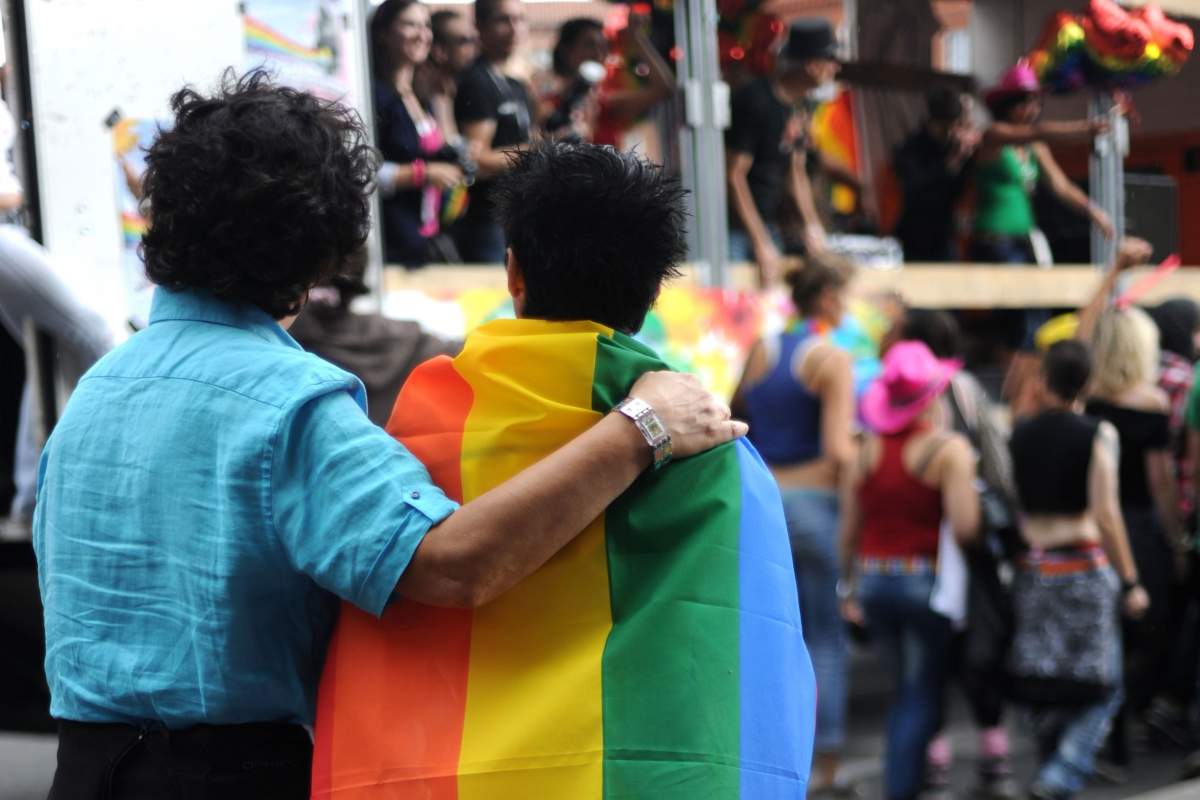
I Want The World To Know
Jackie Howard came out as gay on a Tuesday in 2005. It was a public affair her friends threw her a party at The Speakeasy in Terre Haute. "We had a big party," she remembers. "Everyone came and took over the bar. We played The L Word on repeat on the TV."
Those were the days before she started using Facebook and Twitter, so to get the word out, Howard drew up some flyers to post around town. Her friend Emily Hewitt, who was helping throw the party, noticed one important thing was missing. "She didn't sign her name at all."
"And I said, I know," says Howard. "She said, that's the point. You have to put your name on it."
"So she signed it," says Hewitt. "I remember specifically when she did it, and she let our a really big sigh afterwards and it was really beautiful."
Modern Day Debutante
Tuesday wasn't usually a big going out night for Howard or Hewitt, but they chose October 11, 2005 because it was National Coming Out Day. "I liked that it connected me to the community and was sort of my debutante ball," says Howard, "you know coming out into this larger community."
"I think one of the things we know is that in the first part of the 20th century when people talked about coming out, they were referring to coming out into society in the way a debutante would come out into society," says Colin Johnson, an associate professor of Gender Studies at Indiana University.
He says the notion of coming out has changed throughout the 20th century. By the 1960s and 70s, it was about challenging people's assumptions about how common or uncommon homosexuality was in society:
Because gay liberation was confrontational in some ways it was meant to be confrontational the idea was not necessarily that you were identifying yourself to other people in your subculture, although that was important. It was that you were identifying yourself to friends and family and employers, often at great risk to yourself, but that was seen as a politically important thing to do.
He adds that in recent times, it has also become about coming out to oneself.
Personal Is Political
"I think it tends to be more of a quiet thing and people do it sometimes in stages," says Doug Bauder, coordinator of the Gay, Lesbian, Bisexual, Transgender Student Support Services Office at Indiana University. Instead of focusing on National Coming Out Day, he likes to think of every day as an opportunity for people to come out.
"Coming out really is a significant and, someone has said, the most important political act that anybody who is gay, lesbian, bi or trans can do," he says.
National Coming Out Day was founded to commemorate another political act the 1987 National March on Washington for Lesbian and Gay Rights. That was during a time when the HIV/AIDS epidemic was at its height. Johnson says organizers conceived National Coming Out Day the following year as a positive way for the LGBT community to be visible. "And counteract a lot of the negative feelings that had been directed towards gay men and lesbians, not just because of their sexuality but because of their perceived proximity to HIV and AIDS as a sort of national health issue."
Coming Out Again
He agrees with Bauder that to designate one day a year as Coming Out Day in no way describes the experience that most gay men and lesbians have. "Which is coming out is not something you do one day a year. Actually it's far more common, in fact it's inescapable, for gay men and lesbians to spend their entire lives navigating the coming out process."
Howard makes a point of posting something on Facebook every October 11 as a way of noting how far she's come. Eight years after her coming out, it still sparks conversations.
"About three years ago, I posted on Facebook. I had family members who didn't actually know, which I didn't realize. So, it created another coming out on the same anniversary."






